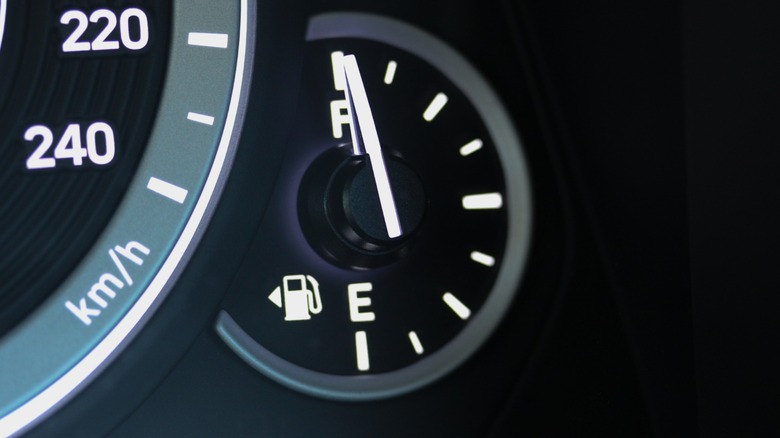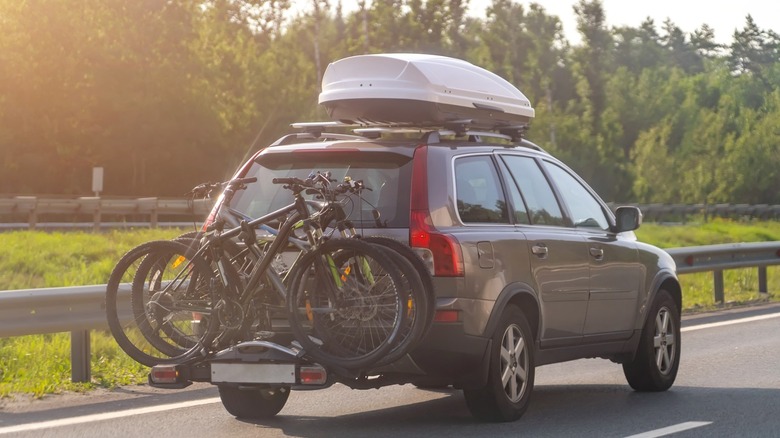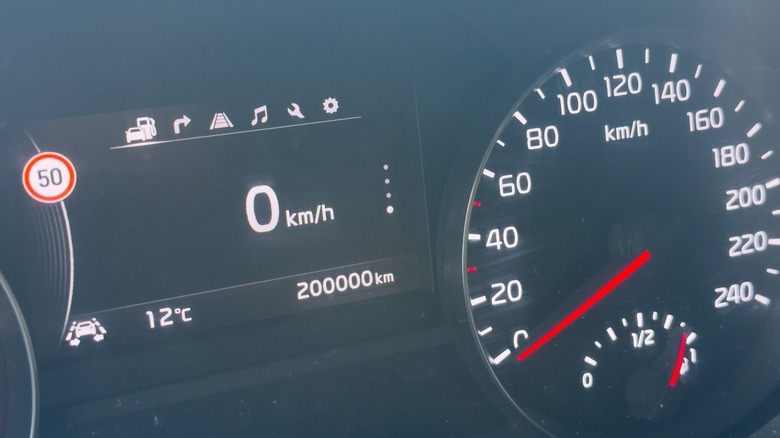Not Neutral Gear Or Rolled Down Windows: This Is The Best Way To Boost Your MPG
Have you ever heard someone give you a fuel-saving "tip," telling you to put your car in neutral gear while going downhill? Or saying you should shut off the A/C and drive with the windows down to increase your MPG? Well, these two aren't completely accurate because, for the first tip, first gear could actually save you gas (and reduce brake wear), and for the second tip, at certain speeds, drag from your open windows will cost you more gas.
In the end, the only way to save gas is to use less power. That should be the core ideology behind any of your gas-saving methods. Generally, that would mean driving less: Consolidate multiple trips into one, carpool when possible, and take city routes only when there aren't traffic congestions. Of course, these options won't always be available for everyone, but the main idea of using less power still applies.
Acceleration uses a lot of power and gas; the less acceleration you do, the better. Braking often means that you'll have to compensate with more acceleration, which is why city driving typically uses a lot more gas than coasting on the highway. Even when you're on the highway, it's a good idea to keep your speed steady using cruise control unless you're on hilly terrain. Along those lines, keeping reasonable speeds helps, since cutting through the wind uses a lot more power the faster you're going. Consumer Reports tests show you can burn as much as 30% more fuel simply by driving at 75 mph instead of 55 mph.
Save gas by easing off the throttle, managing car weight, and keeping a proper maintenance schedule
If you're optimizing your trip routes, you're not heavy on the throttle, you're generous with the cruise control, and you still feel like you have poor MPG, you should consider weight and maintenance. Modifying these two factors has always been among the best ways to use less gas when you're driving; short of just changing your car to something more efficient.
For weight, it comes down to the earlier point about power. The heavier the object, the more power needed to move it. You should tow only when absolutely necessary, and try to keep your car clean of unnecessary debris and payload weight. If you're the type to carry an entire wardrobe in the trunk, or stash heavy textbooks in the back seat, larger or vaster quantities of items could be cutting into your fuel economy.
As for maintenance, the number one thing you should watch out for is your tires. According to the Department of Energy, you can lose about 0.2% of gas mileage for every 1 psi drop in the average pressure of all tires. Another major one is a faulty oxygen sensor, which could also affect your mileage as much as 40%. Bad wheel alignment, old wheel bearings, and even a clogged air filter (only in old cars), can all affect your mileage. In short, take all the maintenance steps to ensure your car is running smoothly.
Record your mileage and run tests to see your MPG
The problem with sweeping advice, like the one we've given here, is that they typically don't account for all the variables that could affect your MPG. The Environmental Protection Agency (EPA) states that fuel economy varies even on the same vehicle, depending on driver, weather, climate, use of accessories, and many other factors.
The best way to improve your efficiency is to log your mileage and review it after driving sessions to see what's affecting it. Most cars have a way to record this directly on the dashboard. All you have to do is buy a full tank and set the counter to zero, then drive as usual. After you're done, record how much fuel you used and how many miles you covered. Repeat this as much as possible, while taking note of what events occurred when driving, and how they may have affected your fuel economy.
You could try experimenting with different tires to see how they're affecting your mileage, or drive with and without the A/C to see if your vehicle is one of those with a heavy A/C load. For instance, there is a considerable difference between the A/C load in a 2009 Ford Explorer and a 2009 Toyota Corolla, according to the tests conducted by Oak Ridge National Laboratory (ORNL). For best results, you'll have to find out by yourself using your own tests, then compare your results to your car's average EPA MPG ratings.


